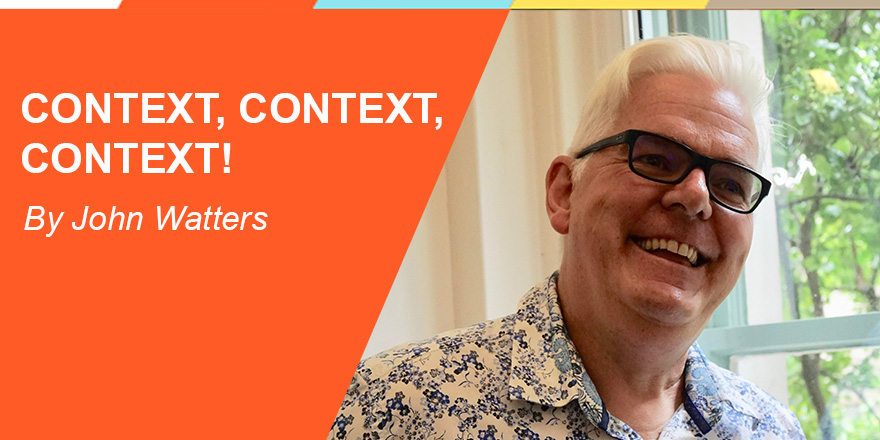

Recent political events have shown us all again how dangerous it is to surround ourselves with a closed circle who may just echo our own thoughts and may even actively insulate us from diverse ideas or concerns. Just ask Teresa May! But this is not just a problem for political leaders who can quickly find themselves out of touch with “reality”.
This is a problem for any leader. How do you maintain contact with others’ reality when there can be even an unintentional conspiracy of protection or filtration of “difficult” messages?
And what if you are actively encouraging this, even unconsciously, by making it very difficult for anyone to “talk truth to your power”? Maybe the ancient courts had it right with their Jesters – their “all-licenced Fool” (as the acerbic jester, the Fool, is refered to in King Lear). Do you have your own Fool?
As a leader, particularly a leader in today’s fast moving VUCA world, how do you keep a porous boundary around yourself so that you do not become isolated and insulated. A porous membrane that lets in all sorts of messages, the positive and the critical or difficult, to enable you to have an ability to see what is actually going on in your wider organisational world. Sounds easy of course and most leaders I have worked with would absolutely start out with that intention. Some even maintained it even in the face of tough messages about themselves and what their leadership was creating. But many don’t. And the consequences can be disastrous.
Creating the right channels
So while I am not advocating the return of the man in motley with a pig’s bladder on a stick. you might do well to look at how you can create an equivalent channel. These Fools were given licence to say the unsayable to their Masters. They might still have to exercise some judgement about how far to go but through humour and the appearance of a sort of craziness or antic behaviour they were able to say what others dared not. The monarch could of course choose what they truly heard but there was at least a possibility that uncomfortable truths could be spoken and heard, and acted upon.
So how can you as a leader ensure that these uncomfortable truths or even just different viewpoints can penetrate your inner circle? One way of course is to “move amongst the people” (as Henry V does with his “little touch of Harry in the night”) – what was called by Peter Drucker MBWA – management by walking about. Get out of your office – actual or virtual – and hear first-hand what is being said around the water cooler or on the shop floor. Engineer situations where a different crowd gathers around you – organise some breakfast sessions or have a genuine Q&A session in your Town Halls. Don’t let your Communications Manager pre-select (i.e. sanitise) the questions but take them from the floor. Get invited to other gatherings, but don’t dominate them. Show up as interested – because you should be – in what they are covering. And don’t overstay your welcome.
There are many other ways you can create these open channels. But none of them will really work unless you are genuinely interested in hearing their truths AND you demonstrate it by actively encouraging it whenever you can in both 1:1’s and in group settings. I have worked with many leaders and managers who constantly say “my door is always open” and while the actual door mat well be open all of the non-verbal signals are saying “enter at your peril” and so no one comes in. And certainly no-one says difficult things to you – the very things you may need to hear if you are going to see the world as it is and not as you are.
So do you have your equivalent of that “all licenced fool” to tell you what you really need to hear? If not what are you willing to do, and change, to make it possible for those words to be said to you? It might just make the difference between failure and success.
Tim Stanyon is an Associate of Future Considerations who combines his diverse and extended organisational and consulting experience with his passion to develop others and help them to bring fulfillment to their purpose. He is passionate about Shakespeare and more generally, bringing poetry and story into organisational life.
Future Considerations Ltd
29 Adonis Street, Acropolis
Subdivision, Libis,
Quezon City,
Philippines 1110
Jon’s early career designing applications led to him becoming IT director for a market-leading multinational. His systemic perspective, allied with a background in psychology and subsequent leadership experience inside major organisations was followed by intensive learning in personal development, values systems and multiple intelligences. Brought together, these create a transformational perspective for understanding and developing organisations as living systems. Jon is a master trainer in Spiral Dynamics, a founder director of the UK chapter of Conscious Capitalism and a certified Spiritual Intelligence coach. He is the author of several books and articles and is developer of Relational Being, a visionary whole systems approach to evidence-based spirituality, complexity science, human emergence, societal change and conscious business. This breadth of experience and deep understanding informs his work as a consultant, coach, trainer and facilitator.